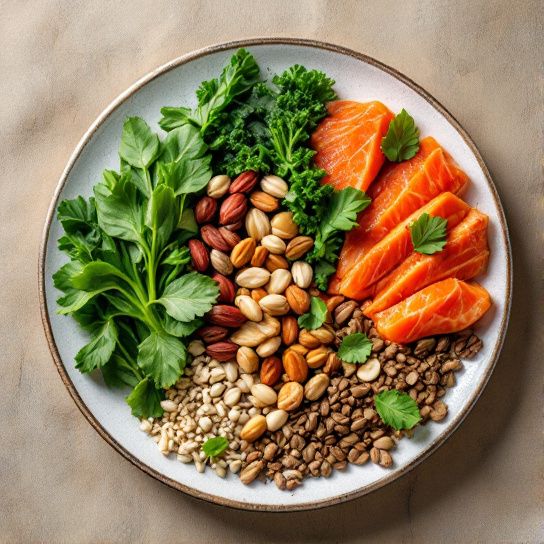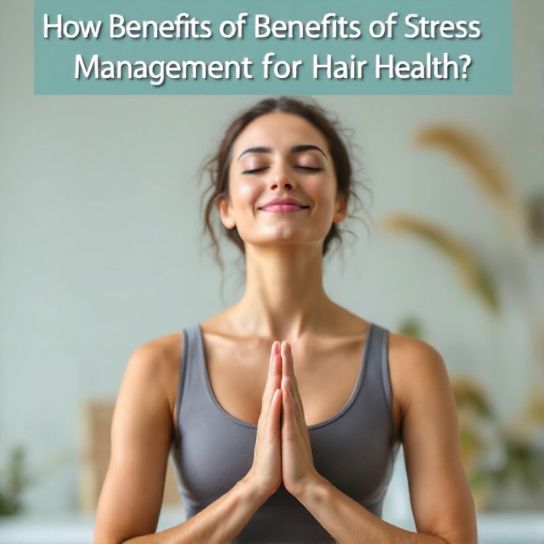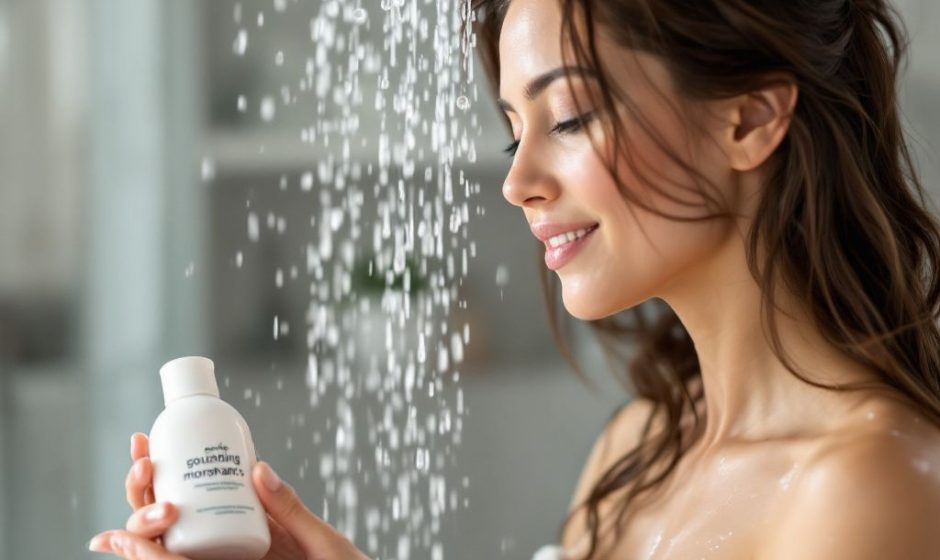Hey there, let’s talk about something that’s not always glamorous but definitely real for many moms-to-be—yep, pregnancy hair loss. If you’ve noticed more hair swirling around the shower drain than sticking on your head, you’re not alone. We’ve come with Fast Solutions for Pregnancy Hair Loss. It’s like one moment you think you’ve nailed the perfect pregnancy glow, and then—bam!—your hair’s doing its own rebellious act, shedding like there’s no tomorrow.
Alright, here’s the thing. When you’re pregnant, your body is busy running a full-scale baby-making operation. Hormones are fluctuating, nutrients are being redirected, and sometimes, your hair’s right in the line of fire.
Why Is This Happening?
Let’s dive straight into why it happens. Your hairstyle partners with estrogen during pregnancy. Usually, increased estrogen levels prolong your hair’s growth phase. More growth means luscious, thick locks that have their own fan club throughout your pregnancy.
But post-baby—oh boy—levels of estrogen drop. That’s when your hair chunks bid adieu, leaving you feeling less like a Pantene commercial star and more like you’re hosting a clogging competition in your shower. Let’s just say it’s a real plot twist after riding high on those pregnancy vibes.

Cutting to the Solutions: Quick Wins for Hair Loss
The key here is finding quick, no-fuss solutions to keep you from pulling your hair out—pun very much intended. The ultimate goal? Get your locks back to good, or at least road-test-ready, without adding stress to your to-do list, which is probably already sky-high.
- Nourish from Within: You know how they say beauty is skin deep? Well, for luscious locks, it also runs scalp deep. Start by making sure you’re feeding not just your baby but yourself nutritious meals. Healthy hair loves protein, iron, and vitamins like A, C, D, and E. You might even want to give zinc and Omega-3s a try—they’re like superfoods for follicles. Think leafy greens, nuts, seeds, oily fish. If munching on spinach doesn’t exactly thrill you, an omega supplement could do the trick.
- Gentle Hair Care: Your hair is in a fragile state. It’s almost like handling a newborn puppy; you have to be gentle. Avoid harsh treatments, super hot showers, and tight hairstyles. Instead, opt for a mild, volumizing shampoo that caters to fine or thinning hair. Trust me on this—choosing the right shampoo and conditioner is like picking out a perfect outfit—comfort meets function.
- Stress Less: And right here someone’s rolling their eyes. “Easier said than done!” A simple practice like mindfulness, some good ol’ yoga, or meditative breathing techniques is more than advisable—it’s therapeutic. Stress doesn’t just mess with your mind, it meddles with your hair. Cortisol, the famous stress hormone, can indirectly exacerbate hair loss issues. If winding down means a glass of warm milk or binge-watching some sitcom re-runs—do it.
Now, what else can we dabble with… oh right, those hairvitamins flying off the shelves.

Are Hair Supplements the Real Deal?
Hair growth supplements have become a bit of a fad with the big question—trend or truth? Remember, before you pop anything extra, discuss with your healthcare provider. Some hair supplements boast nutrients designed to fast track hair growth, and many users have seen positive results. Biotin, for instance, is raved about—not only by your friends but also by lots of folks online—and often recommended post-partum.
Folks laying out bucks for these can vouch that while it doesn’t turn you into Rapunzel overnight, it definitely nurtures the new growth, making hair feel healthy and manageable.
Hair-Friendly Lifestyle Changes
A quick rally on simple lifestyle changes you might not have considered:
- Sleep More: This feeds into stress management, but solid Zs help your body repair, including those hair follicles.
- Hydration Nation: Water is life, not just for your baby but your strands too. Hydrated hair is happy hair.
- Scalp Massage: Give this a try. Few minutes of massage with your fingertips daily—like when you’re shampooing or applying a hair oil—it improves circulation. Healthy circulation keeps that scalp of yours buzzing like a healthy beehive.
- Balanced Brushing: Not too much; not too little. Brushing distributes natural oils but if you go overboard, it leads to damage.

Professional Interventions—When Do They Help?
Sometimes, after giving every home remedy a shot, you might still catch yourself staring in despair at the hairbrush that looks like it sprouted a furry alien. That’s when professional tips and treatments step in.
Dermatologist Delphia
Alright, not a real person but something I just coined. Consulting a dermatologist can unveil a treasure trove of fast solutions for pregnancy hair loss options advanced beyond over-the-counter options.
Low-Level Laser Therapy (LLLT): Sounds futuristic? It kind of is! This non-invasive treatment employs light energy to invigorate your hair follicles, kickstarting growth.
Prescription Treatments: Sometimes dermatologists might recommend topical solutions to apply directly to your scalp that can boost hair growth.
You could also wander into the world of hair salons known for specializing in thinning hair; there, they’ll pamper you and your locks with specialized treatments aimed to give you that voluminous bounce back.
Hair Care Do’s and Don’ts
The Do’s:
- Visit Frequently: Pop by your stylist often for a trim. Split ends are not invited to this hair-growing party.
- Diversify Hairstyles: Let your hair breathe. Mix it up—sometimes down, a soft braid here, a bun there. Variety isn’t just the spice of life but of hair care too.
The Don’ts:
- Avoid Radical Changes: Hold off on drastic color changes or heat installations of any kind. Chemical processing plus fragile hair is a no-go zone.
- No Tight-Ties: Tight rubber bands? Ouch—not worth it as they tug on those tender roots.
When All Things Are Said and Done
Finding fast solutions for pregnancy hair loss doesn’t happen overnight. But think of it as a puzzle where every small piece—be it a sunflower seed, a scalp massage, or skipping that fourth latte—contributes to whole picture health and beauty. Go easy on yourself. You’re handling a million things at once, and hair, darling, is just one strand of the bigger masterpiece that is you.
Whenever you feel like letting go, remember losing hair doesn’t mean you’re losing beauty. You’re in the beautiful chaos of creating life. So, until your strands decide to calm back into thick waves or silky curtains, do what you must but mostly— just be kind to yourself, loved by many for far more than what hangs by your scalp.
FAQ
Q1: What causes hair loss after pregnancy?
Hair loss after pregnancy, known as postpartum hair loss or telogen effluvium, is primarily caused by the significant drop in estrogen levels following childbirth. During pregnancy, high estrogen levels prevent the normal shedding of hair, leading to thicker hair. After delivery, when estrogen levels return to normal, the hair that was retained during pregnancy starts to shed.
Q2: How long does postpartum hair loss last?
Postpartum hair loss typically lasts less than six months and usually peaks around the four-month mark after childbirth. In most cases, hair regains its fullness by the time the baby turns one year old.
Q3: Are there any treatments for postpartum hair loss?
While there is no specific treatment to prevent or stop postpartum hair loss, several strategies can help manage it. These include using volumizing shampoos, maintaining a healthy diet rich in nutrients, avoiding tight hairstyles, and being gentle when brushing your hair. Additionally, continuing prenatal vitamins can support overall hair health.
Q4: Can I prevent postpartum hair loss?
There is no known way to prevent postpartum hair loss, as it is a natural consequence of the hormonal changes during and after pregnancy. However, adopting gentle hair care practices, eating a balanced diet, and avoiding harsh hair treatments can help minimize the impact and support hair health.




